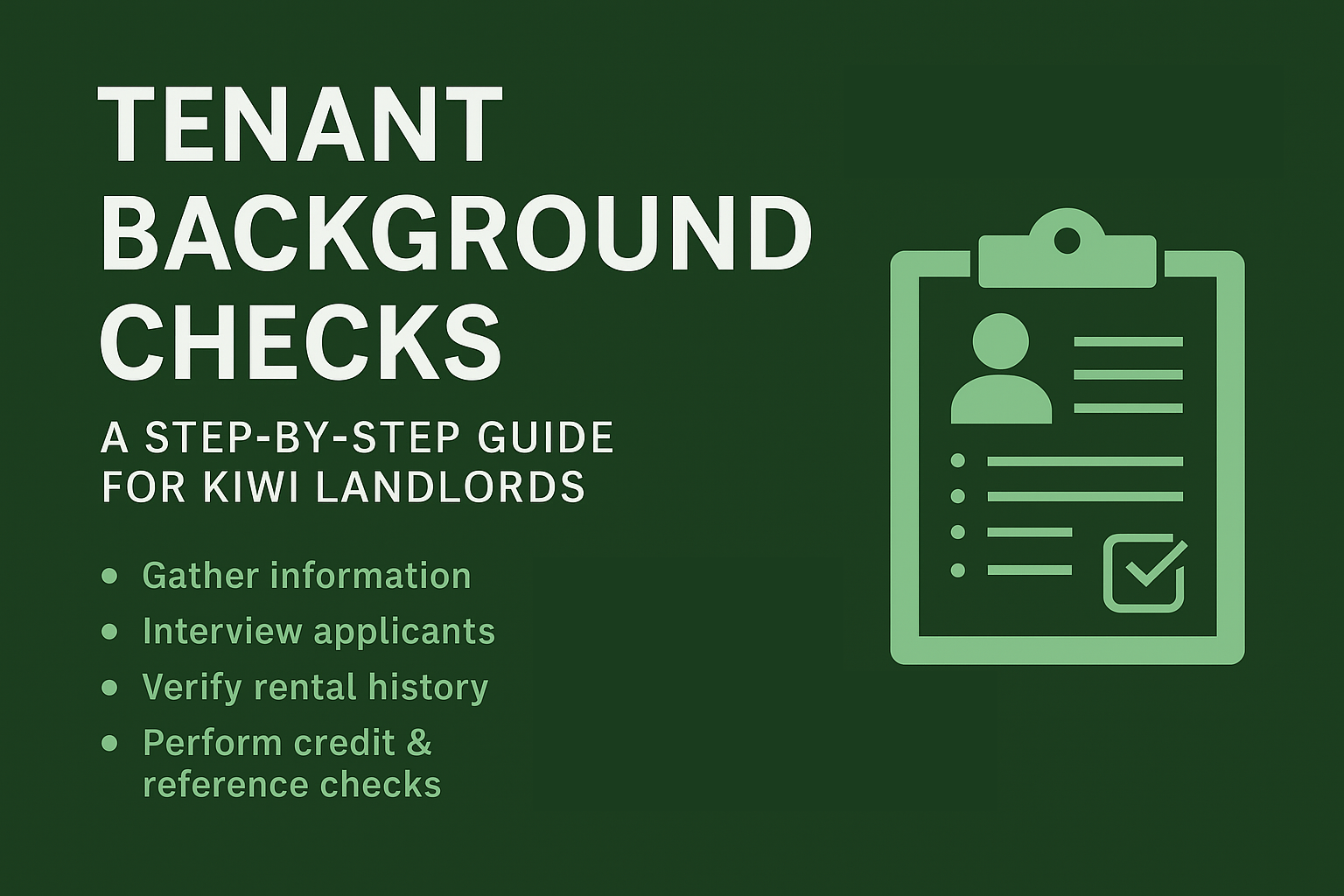Finding reliable tenants is one of the most important parts of being a successful landlord in New Zealand. A thorough background check helps you avoid late rent, property damage, and unpleasant surprises. This guide walks you through each stage of the tenant screening process so you can protect your investment, reduce disputes, and build a positive relationship with the people who call your property home.
A comprehensive tenant background check can help you:
Ensure Compliance: In New Zealand, there are rules around fair trading and privacy. A systematic process helps you stay compliant with privacy and tenancy laws.

Begin by collecting key documents and information from prospective tenants. The more complete the application, the better. Typical items include:
Encourage prospective tenants to submit a complete application to avoid delays and improve their chances of approval.
After collecting an application, speak directly with the prospective tenant or schedule a phone interview to clarify important details. Some topics to cover include:
Observe how they respond. A friendly, open approach often indicates willingness to communicate with you throughout their tenancy.
Contacting previous landlords or property managers can provide valuable feedback. Aim to verify:
Be mindful of privacy laws. It is best practice to have the applicant’s written consent to contact previous landlords. Focus your questions on tenancy-related matters rather than personal topics.
Credit checks are a major part of tenant screening in many countries, including New Zealand. A strong credit history suggests the tenant has been responsible with money and is more likely to pay rent on time. While there is no single score that guarantees reliability, watch for:
Some landlords opt to handle credit checks through a professional screening agency or use an online service. Always be sure to comply with relevant privacy regulations and obtain consent from the applicant.
Although New Zealand does not provide a single, nationwide tenant blacklist, there are tools and checks to identify risk factors:
Strive for consistency. Ensure you apply the same checks for all applicants to stay fair and avoid any appearance of bias.
While not legally required, meeting potential tenants can reveal subtle cues about how they communicate and respect boundaries. This could take place during a second viewing or a more casual meet-and-greet:
If meeting in person is not possible, rely on your property manager’s observations or schedule an online video call.
Be on the lookout for warning signs that may warrant caution or rejection:
While none of these alone means automatic rejection, weigh them carefully, especially if there are multiple red flags in one application.
After gathering references, credit history, and personal details, you can compare each applicant’s strengths and weaknesses. If using a property manager, they may recommend a shortlist based on your requirements. The final choice, however, is yours.
Once you decide on a tenant, it is time to:
Screening tenants thoroughly is essential, but it can also be time-consuming. This is where NZ Realty’s Casual Letting Services come in. Our team handles the heavy lifting:
This service is perfect if you plan to manage the property yourself but want professional help securing quality tenants. By partnering with NZ Realty, you benefit from expert marketing, tried-and-tested screening, and a streamlined agreement process, saving you time and minimising stress.
A detailed background check is one of the best ways to protect your property and ensure a stable, hassle-free tenancy. Gathering complete applications, verifying rental and credit histories, and trusting your instincts are all part of finding a reliable tenant who respects your investment. If you need assistance along the way, NZ Realty’s Casual Letting Services offer professional support with advertising, screening, and paperwork, so you can secure the right tenant from the start.
Ready to place your property in expert hands? Reach out to NZ Realty today and discover how our Casual Letting Services can help you find high-quality tenants with less effort.